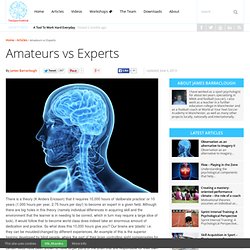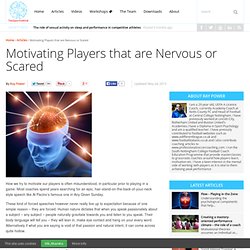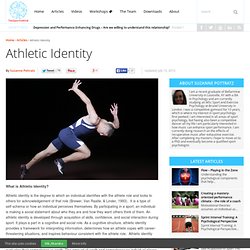

Amateurs vs Experts. There is a theory (K Anders Ericsson) that it requires 10,000 hours of ‘deliberate practice’ or 10 years (1,000 hours per year, 2.75 hours per day!)

To become an expert in a given field. Although there are big holes in this theory (namely individual differences in acquiring skill and the environment that the learner is in needing to be correct, which in turn may require a large slice of luck), it would follow that to become world class does indeed take an enormous amount of dedication and practice. Motivating Players that are Nervous or Scared. How we try to motivate our players is often misunderstood, in particular prior to playing in a game.

Most coaches spend years searching for an epic, hair-stand-on-the-back-of-your-neck style speech like Al Pacino’s famous one in Any Given Sunday. These kind of forced speeches however never really live up to expectation because of one simple reason – they are forced. Human nature dictates that when you speak passionately about a subject – any subject – people naturally gravitate towards you and listen to you speak. Their body language will tell you – they will lean in, make eye contact and hang on your every word.
Alternatively if what you are saying is void of that passion and natural intent, it can come across quite hollow. Athletic Identity. What is Athletic Identity?

Athletic identity is the degree to which an individual identifies with the athlete role and looks to others for acknowledgement of that role (Brewer, Van Raalte, & Linder, 1993). It is a type of self-schema or how an individual perceives themselves. By participating in a sport, an individual is making a social statement about who they are and how they want others think of them. An athletic identity is developed through acquisition of skills, confidence, and social interaction during sport. It plays a part in a cognitive and social role.